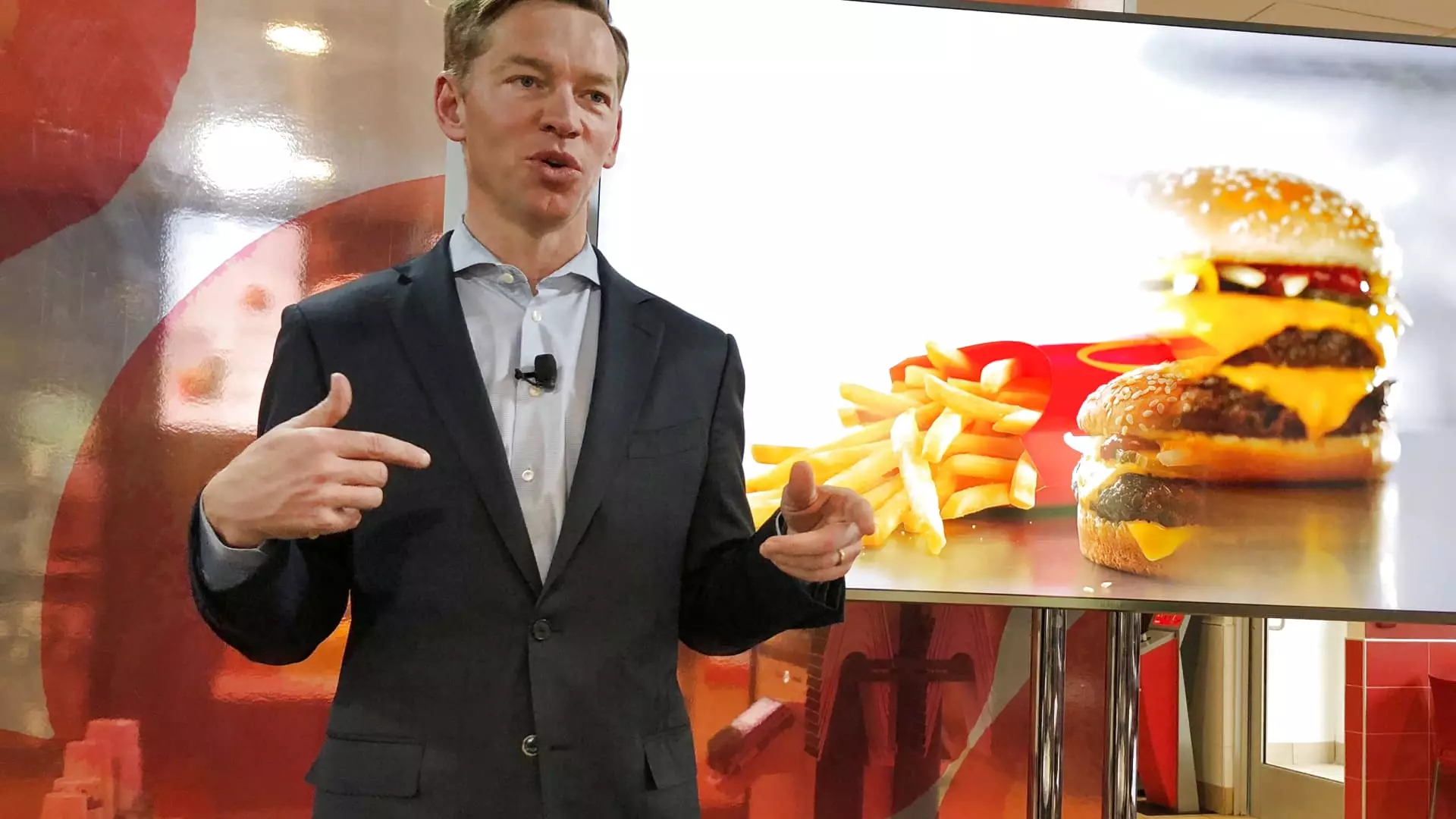In the fast-food industry, where speed, convenience, and consumer perception reign supreme, any disruption can lead to devastating consequences. Recently, McDonald’s found itself embroiled in controversy when health authorities connected a deadly E. coli outbreak to its iconic Quarter Pounder burgers. From swift action to public relations strategies, this incident illuminates the challenges companies face in managing crises, particularly those related to food safety and public health.
A week after the outbreak was publicly identified, CEO Chris Kempczinski minimized concerns during a conference call with investors. He expressed optimism, stating, “the situation appears to be contained.” However, such statements must be viewed critically; dismissing the seriousness of health issues can be detrimental. Kempczinski reassured stakeholders that the company is moving forward, yet this approach risks alienating customers who may still feel vulnerable due to potential health risks from their favorite burgers.
The company’s readiness to reinstate Quarter Pounder burgers in approximately 3,000 U.S. locations, after withdrawing them in light of health warnings, raises questions regarding the meticulousness of its safety protocols. While investigations by the Food and Drug Administration (FDA) indicated that the beef patties were not contaminated, the potential source—a batch of slivered onions—is a reminder of how interconnected food supply chains can exacerbate health risks. In a world where food travels thousands of miles, the possibility of contamination at any stage poses a challenge for brands and consumers alike.
In times of crisis, a company’s communication strategy is essential. Kempczinski’s comments indicated a sense of recovery, yet skepticism remains among consumers and investors. The immediate drop in sales and traffic following the outbreak announcement reinforces that health crises can sharply impact financial performance. CFO Ian Borden’s commentary that the company faces no material impact on business operations contradicts reality—how can one truly gauge the ramifications of a public health crisis?
Furthermore, while McDonald’s reported a 0.3% increase in same-store sales for the third quarter, this figure still fell below expectations set by analysts. The discrepancy signals that though investors may have expected recovery, underlying consumer trust in the brand has likely suffered lasting effects that pure statistics cannot capture.
Kempczinski’s heartfelt apology to customers is an essential step in rebuilding trust. He acknowledged the gravity of the situation: “Hearing reports of how this has impacted our customers has been wrenching for us.” This expression of empathy is crucial; consumers today expect brands to engage authentically, especially in distressing circumstances. However, it requires more than words—it demands action.
The company’s decision to remove slivered onions from the menu at nearly 900 locations demonstrates attentiveness to customer safety. However, this move also emphasizes the importance of rigorous supplier vetting and food safety practices. Consumers will likely scrutinize whether McDonald’s is capable of preventing similar incidents in the future.
Moreover, the reported legal actions resulting from the outbreak highlight potential pitfalls in liability management. Lawsuits can create financial strain and tarnish a brand’s image, making it essential for McDonald’s to not only mitigate health risks but also strengthen its legal defenses.
In a post-outbreak landscape, the challenges facing McDonald’s extend far beyond immediate profit margins. It serves as a case study about the critical role of crisis management in the fast-food industry. The integration of stringent safety protocols, transparent communication, and authentic customer engagement will be pivotal in restoring McDonald’s reputation.
As the company attempts to regain momentum, it must not overlook the lessons learned. The public’s trust, once shaken, requires consistent and committed efforts to rebuild. Ultimately, McDonald’s path forward demands greater diligence and a conscientious approach to food safety, where customer well-being remains at the forefront—a value that should persist beyond the immediate crisis.


Leave a Reply